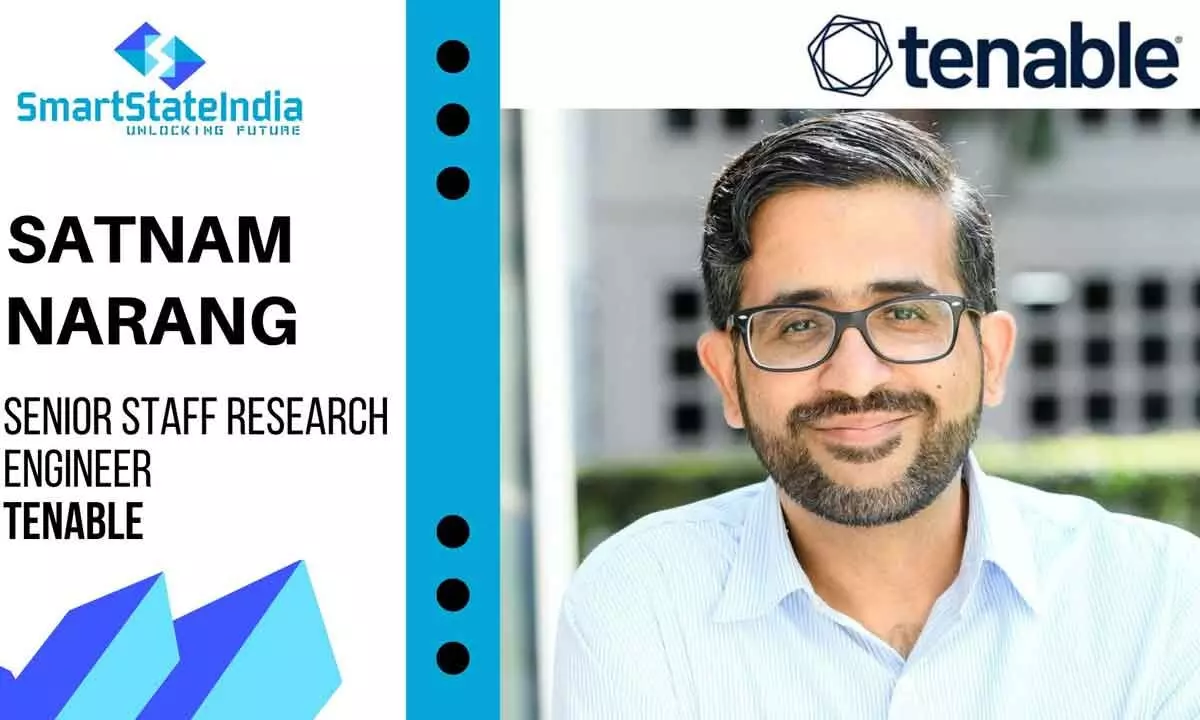How Cybercriminals are using AI to catch distracted consumers during festive season

If you see ads or promotions for free things like popular technology, clothing, or gift cards, understand there is no such thing as free. There is always a price to pay, including a charge to your personal or credit card information - Satnam Narang.
It has been said that in life, certainties include death and taxes. Another certainty is that scammers are opportunistic, and the festive season sales provide scammers an excellent opportunity to target individuals worldwide. While we know that their playbooks are often very predictable, in 2023, the prominence of generative AI, such as ChatGPT, gives scammers an additional edge. Mr Satnam Narang, Senior Staff Research Engineer of Tenable, discusses with The Hans India how cybercriminals utilise AI, particularly generative AI like ChatGPT, to exploit distracted consumers during the festive season and shares tips on safeguarding yourself from falling prey to these scams.
In India, 82% of customers have fallen victim to online scams, and 42% have been victims of AI voice scams. What’s more concerning is that a large chunk of customers don’t know how to spot an online scam. In fact, 44% of Indian customers intent on shopping during this holiday season say they aren’t sure of the best ways to shop securely online.
Satnam Narang, Senior Staff Research Engineer, Tenable
“Often, scams that appear during these holidays may be riddled with inaccuracy in spelling and grammar, but the availability of generative AI closes the gap between the novice scammer with poor spelling and grammar and gives them a competitive edge they’ve never had before. Scammers will use these tools this year as part of their scams and will find more success than in years past.” Satnam Narang.
One byproduct of the gold rush in generative AI is the push across various mediums, including video, to help drive improvements to things like deep fakes. Earlier this year, Tenable Senior Staff Research Engineer Satnam Narang discovered how MrBeast, the biggest YouTube star in the world with over 188 million subscribers, was impersonated on TikTok to promote a fake iPhone 15 giveaway. The deepfake significantly improved over what we’ve seen in the past. It wouldn’t be a surprise to see scammers continue this festive trend and leverage the likeness of celebrities and other social media influencers to promote giveaways and scams.
An old tactic that remains prevalent each year is the promotion of free $500-1000 gift cards to various brands, from Apple and Sephora to Cash App and Spotify, on various social media platforms, including Instagram and TikTok. These gift cards aren’t free, as they require users to reveal personal information and purchase premium offers, such as free trials, which will cost them money in the long run if they don’t follow the fine print and cancel.
“Social media is the perfect place to catch distracted users off guard. Today, cybercriminals can begin scams on one social network and drive users to another. Fake profiles are rampant, and scammers can create hundreds of accounts to legitimize their scams. These existing tactics combined with the current boom of generative AI and use of deep fakes creates a dangerous situation for users,” added Satnam Narang.
For consumers this festive season, it is important to recognize the following:
Be aware of cyber criminals' tactics. Personalities like MrBeast giving away things, links that take you off the platform, and social profiles with no engagement, posts or following may represent a red flag. If you have doubts, it is always better to be safe than sorry.
Be extra cautious and sceptical about offers and giveaways on social media. With the availability of generative AI like ChatGPT and other large language models means scams that you might normally recognize due to poor spelling and grammar won’t be so easy to spot, and improvements in deepfake technology mean fake video content is likely to appear on your social media feeds.
Free doesn’t mean free. If you see ads or promotions for free things like popular technology, clothing or gift cards, understand there is no such thing as free. There is always a price to be paid, including your personal or credit card information being charged. Therefore, be wary of such offers.
Always use trusted websites and services. If you’re looking for products and deals for the festive sale, go to the source and visit the trusted, reputable sources before making a purchase.

















